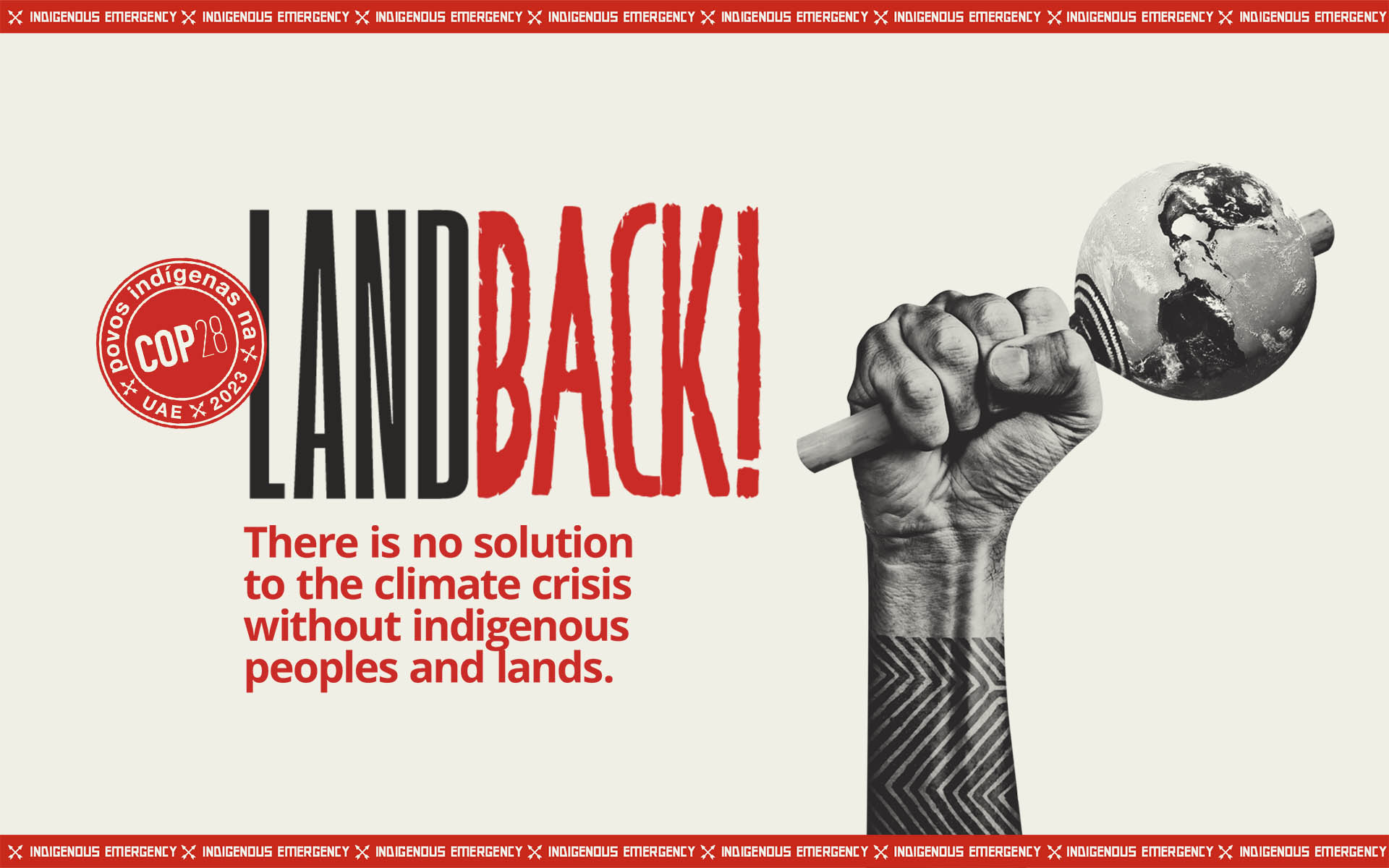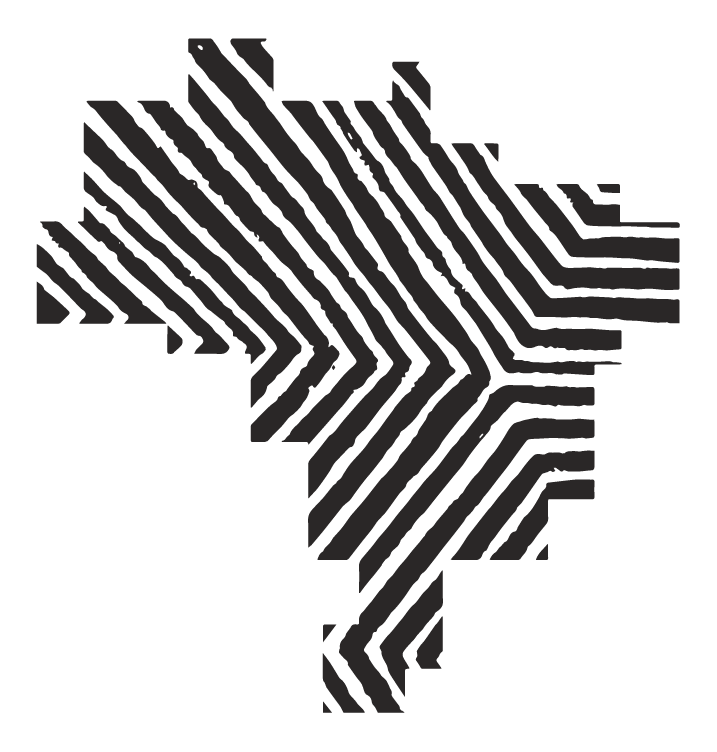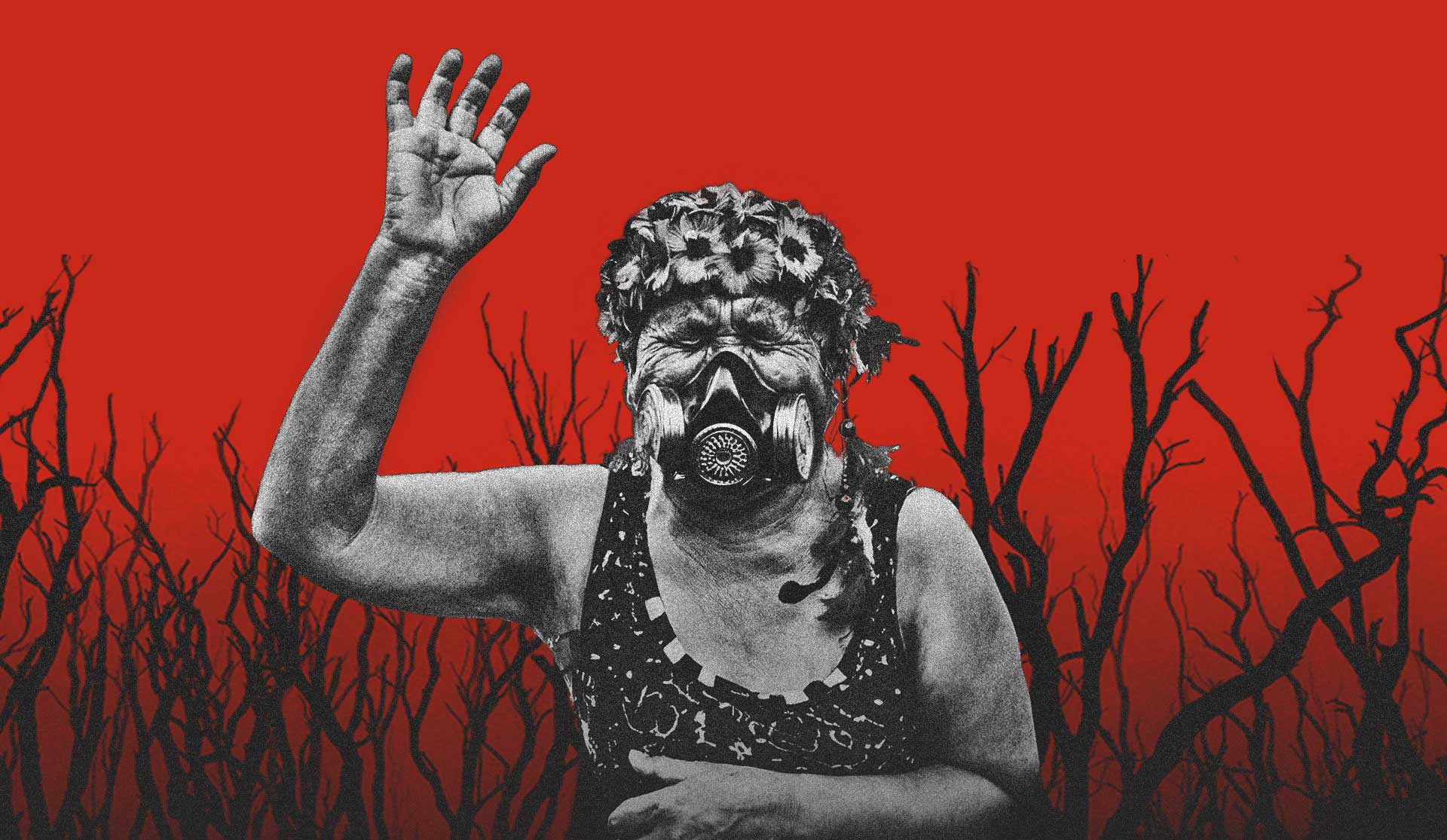
What to expect
from COP 28?
2023 was the hottest period in recent human history. We are increasingly witnessing extreme climate events that disproportionately affect Indigenous peoples, quilombolas, traditional communities, and the poorest and most vulnerable populations.
This year’s Conference is taking place in the city of Dubai, United Arab Emirates. The country is one of the top 10 largest oil exporters globally, and COP 28 is chaired by the oil magnate, Sultan Al Jaber, who serves as the Minister of Industry and Advanced Technologies and is the president of the country’s state-owned oil company.
This sets a controversial context in the debate on climate change and the phase out of fossil fuel usage.
At COP 28, three key issues are expected to
dominate the discussions:
✹ Funding for the adaptation of vulnerable countries
✹ Commitments to reduce emissions
✹ Progressive phasing out of fossil fuels
In the previous year, at COP27, negotiators made progress by agreeing to establish a fund to assist developing countries in recovering from climate-related disasters.
Now, in Dubai, negotiators will aim to reach a consensus on more delicate details, such as which countries can access this fund, how it will be managed, and above all, who will contribute and how much.



This year, we have the highest Indigenous participation in a COP among all held Conferences, with approximately 60 leaders present.
The Apib and all its regional grassroots organizations emphasize that THERE IS NO SOLUTION TO THE CLIMATE CRISIS WITHOUT INDIGENOUS PEOPLES AND TERRITORIES.
According to UN data, Indigenous peoples are guardians of 80% of the planet’s biodiversity, yet they directly access less than 1% of global climate financing.

This year, Apib’s delegation at the Conference emphasizes that the government of Brazil has changed, but the Indigenous Peoples, the primary guardians of all Brazilian biomes, remain under threat.
For this reason, Indigenous organizations in Brazil launch the campaign “Indigenous Emergency” and make an international appeal against the Marco Temporal and for land demarcation!
The future of the planet depends on demarcation, ratification, protection, and the guarantee of full and permanent possession of the lands for Indigenous peoples!

SCHEDULE APIB at COP28
FRIDAY - 1 DECEMBER
✹ 12:00 – 12:30 Press Conference: Indigenous Leaders and Launch of the Indigenous Emergency Campaign
Location: Press conference area – Blue Zone
✹ 15:15 – 16:30 Combating the damage to maternal and reproductive health caused by fossil fuels and petrochemical products
Location: Health Pavilion – Blue Zone
SATURDAY - 2 DECEMBER
✹ 09h00 – 11h00 COP 28 to 30 – Strengthening civil society engagement
Meeting of APIB and civil society with President Luiz Inácio Lula da Silva, Minister Sonia Guajajara, Minister Marina Silva and Minister Márcio Macedo
Location: Action Lab – Al Shaheen – Blue Zone
✹ 11h00 – 12h00 Indigenous Women’s Hour: Weaving strategies to unite against the climate crisis
Location: Indigenous Peoples Pavilion – Blue Zone
✹ 17h00 – 19h00 Partnerships to Access Direct Financing for Indigenous Peoples and Local Communities
Location: Nature Positive Pavillion – Blue Zone
SUNDAY - 3 DECEMBER
✹ 08h30 – 09h00 Indigenous Peoples’ Day Ceremony at the Nature Positive Pavillion
Location: Nature Positive Pavillion – Blue Zone
✹ 12h00 – 12h45 Voices from the Territories
Location: E+C Pavillion – Blue Zone
✹ 12h00 – 13h15 Climate Justice as a way of deepening a democracy committed to reducing inequalities
Location: Brazil Pavilion – Blue Zone
✹ 16h45 – 17h45 Shandia Insight: Financing on the front line for indigenous peoples and local communities
Location: Nature Positive Pavillion – Blue Zone
MONDAY - 4 DECEMBER
✹ 12h00 – 13h00 Indigenous Committee on Climate Change: innovation in tackling climate change
Location: Indigenous Pavilion – Blue Zone
✹ 13:15 – 14:00 Indigenous Women’s Hour: Weaving strategies to unite against the climate crisis
Location: Canada Pavilion – Blue Zone
✹ 15:15 – 16:45 Economies of Nature: The Potential of Biodiversity Credits in Conversation with Indigenous Peoples and Local Communities
Location: Climate Funds Pavilion, Thematic Arena 3 –
Blue Zone
TUESDAY - 5 DECEMBER
✹ 13h30 – 14h45 Indigenous Voices in the Defense of the Amazon: Mobilization and Communication Strategies in the Protection of Territories
Location: Brazil Pavilion – Blue Zone
✹ 15h00 – 16h15 Brazil towards COP30: indigenous and local community protagonism in tackling the climate crisis
Location: Brazil Pavilion – Blue Zone
✹ 18h00 – 20h00 Reception for the Global Alliance of Territorial Communities
Location: To be confirmed
WEDNESDAY - 6 DECEMBER
✹ 12h30 – 13h30 Indigenous peoples’ knowledge about regenerative practices, agroecology and food systems
Location: Food and Agriculture Pavilion – Blue Zone
✹ 12h30 – 13h30 Young indigenous women leaders tackling climate change
Location: Civil Society Climate Justice Hub Room 1 – Blue Zone
FRIDAY - 8 DECEMBER
✹ 11:30 – 13:30 Climate Finance Ecosystem for Indigenous Peoples in Brazil: The unique network of Indigenous-managed Funds
Location: Climate Justice Civil Society Hub Room 1 – Blue Zone
✹ 17h00 – 18h00 Safeguarding life, rights and our planet: Unmasking global crimes against land defenders
Location: Indigenous Pavilion – Blue Zone
SATURDAY - 9 DECEMBER
✹ 14h00 – 15h30 Promoting the integrated implementation of national climate and biodiversity frameworks for action in 2030
Location: Al Saih Presidency Roundtable – Blue Zone
✹ 16h30 – 18h00 Ministerial Event – Delivering on the Glasgow Leaders’ Declaration: How to halt forest loss by 2030
Location: Al Waha Theatre – Blue Zone

